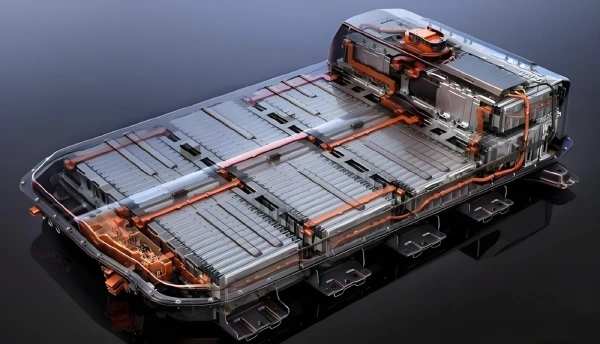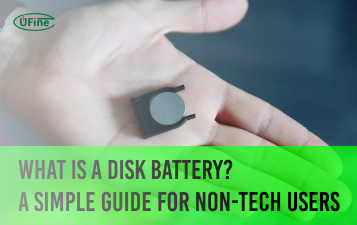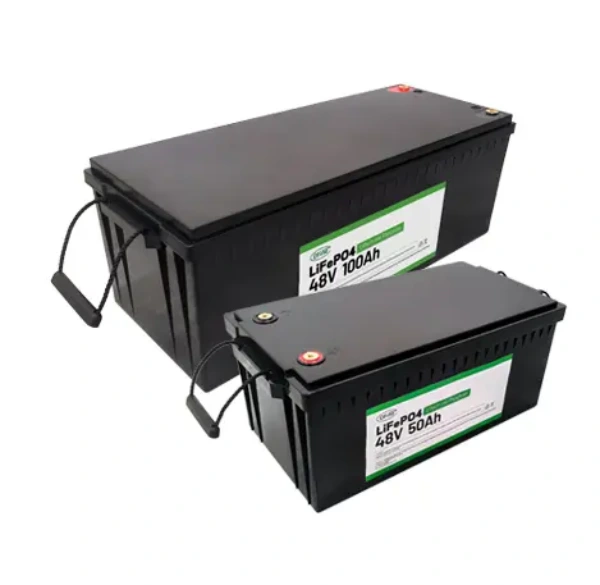A battery plays a vital role in a car. A battery’s primary function is to provide starting power to the engine and help in the smooth operations of various electrical instruments. Being a dependable source, the battery is a voltage stabilizer. It provides energy backup when the car’s end is turned off. Traditionally, most cars come with lead-acid batteries. Still, now the LiFePO4 Car Battery is a new innovative option with several advantages. LiFePO4 is based on lithium iron phosphate, which is considered the most efficient and latest technology for modern vehicles.

Part 1. LiFePO4 vs. lead acid: advantages of LiFePO4 car battery
The LiFePO4 (Lithium Iron Phosphate) car battery provides several advantages over traditional lead-acid batteries and lithium-ion chemistries. It makes LiFePO4 Car Battery a popular choice in automotive applications:
1. Longer life
LiFePO4 batteries are known for their impressive lifespan if they are taken care of properly. A LiFePO4 car battery can last 5 to 10 years or more than 4000 cycles. However, some factors, like extreme weather conditions, irregular charging, and discharging, can affect the battery’s lifespan.
2. Fast charging ability with higher discharge rates.
A LiFePO4 lithium iron phosphate car battery can charge quicker than a lead acid battery. It can handle C-rates of 1C to 4C, which means the charging range is 15 minutes to 1 hour, but it depends on the specific battery model car alternator charging ability. Moreover, the internal chemistry of
LiFePO4 car battery can deliver consistently high power rates, which ensures battery acceleration and overall performance.
3. Lightweight (easier on your car)
Every pound counts in a car. The lighter weight of LiFePO4 can enhance the vehicle’s acceleration, handling, and fuel improvement. A LiFePO4 car battery weighs anywhere from 5 kg to 30 kg compared to a lead-acid car battery weighing around 15 kg to 35 kg. So, the LiFePO4 battery is 50% to 70% lighter and has similar power efficiency.
4. Higher safety (less risk of explosion)
Being the latest technology, the battery has more safety features, making it the first choice for the car industry. LiFePO4 car battery has a non-flammable electrolyte, puncture resistance build, and stable internal structure, lowering the risk of explosion, fire, and overheating.
5. Low maintenance (no need for topping up fluids)
Once you have installed a LiFePO4 car battery, you will not need to look after the maintenance. LiFePO4 battery does not need to be refilled with fluid like the lead-acid car battery. Besides this, the absence of fluids means there will be no stain stress on the chassis, suspension, and battery compartment like the lead acid battery used to have over time.
Part 2. LiFePO4 vs. lead acid: disadvantages of LiFePO4 car battery
Every picture has two aspects. Before deciding anything, one should know some of the drawbacks of the LiFePO4 car battery.
1. Higher initial cost compared to lead-acid batteries
It is expensive if you are switching from a lead-acid car battery. The cost of a LiFePO4 car battery is 2 to 3 times higher. However, it may be a one-time investment beneficial in the coming years.
Always need a compatible charging system (may need modifications)
If you plan to switch car batteries with LiFePO4, a lithium iron phosphate, make sure that the battery comes with a Battery Management System (BMS). It is an internal charging control system that stabilizes the voltage of the car’s alternator. However, in the case of a battery management system, a BMS always needs to make some alterations to the car’s charging system to prevent overcharging problems.
2. Extreme weather condition tolerant issue
Like the lead-acid car battery, LiFePO4 has performance issues in case of extreme weather conditions. The normal operational range to get the best performance in terms of capacity, power output, and charging efficiency of LiFePO4 car battery is between 0°C to 45°C (32°F to 113°F). However, performance and safety are not optimal in extreme weather conditions below 0°C and above 45 °C.
3. Not easily available like traditional batteries
Another disadvantage of LiFePO4 batteries is the issue of availability. Being new in the market, it will take some time to establish lead acid batteries. Therefore, finding a suitable LiFePO4 car battery to switch from a lead acid battery is always hard.
4. Important Considerations Before Switching
Suppose you plan to switch your old lead acid car battery with the latest and more energy-efficient LiFePO4 car battery. In that case, you should consider some key points.
Firstly, find out the specific model of LiFePO4 battery that is compatible with your car. Each car needs a different size and amp hour for proper starting and operating electronic instruments. Therefore, choose a battery that is compatible with car needs.
Secondly, consider the battery’s charging system. Some LiFePO4 car batteries with BMS can be installed directly without altering the charging system. However, in the case of a battery without BMS, a kit will be required to stabilize the charging voltage coming out of the battery alternator.
Thirdly, the cost of the LiFePO4 car battery is 2 to 3 times higher than that of the lead acid battery. Therefore, it is hard to invest more money in the battery. However, it is worth taking the initiative as the cost will recover in the coming years due to the longer battery lifespan.
Part 3. Summary
LiFePO4 is a compelling upgrade for a car battery that replaces old lead acid battery technology. Many positive enhancements make lithium iron phosphate batteries the number one choice over other car batteries. The lighter weight, longer lifespan, and durability are the key features of the LiFePO4 car battery. So, a LiFePO4 car battery is the right choice for your vehicle. However, it is compulsory to consult a mechanic with experience with the LiFePO4 battery to confirm the compatibility with your car.
Part 4. Additional tips
While switching car batteries from a lead acid battery to a LiFePO4 battery, you should try to find the right and most trustworthy battery brand. Many known battery manufacturers are making LiFePO4 car batteries. One of the most trustworthy brands is Ufine Battery, which also provides custom batteries for your car. Another valuable tip is to take care of the installation of LiFePO4 batteries into the car. Always find the right expert for this purpose. Finally, pay attention to the battery warranty options in case of any issues.
Related Tags:
More Articles

What Is a Disk Battery? A Simple Guide for Non-Tech Users
A disk battery is a small, round cell used in watches, remotes, and other electronic devices. It delivers steady power for compact, low-drain devices.
What Battery Powers a Space Heater?
Discover the type of battery that powers space heaters and learn how to choose the right one for efficient heating in your home or office.
What Is an LR14 Battery? Learn About This C-Size Cell
The LR14 battery, also known as a C battery, delivers steady power. Learn its specs, uses, lifespan, and how it compares to other battery types.
Watch Battery Dimensions Chart: Sizes, Voltages, and Equivalents Explained
Understanding watch battery dimensions helps you choose the right size, voltage, and equivalent model to keep your watch running safely and smoothly.
How Long Can You Rely on Battery-Powered Generators?
Discover battery generator runtime & lifespan factors. Learn how to maximize performance and choose the right power solution.




